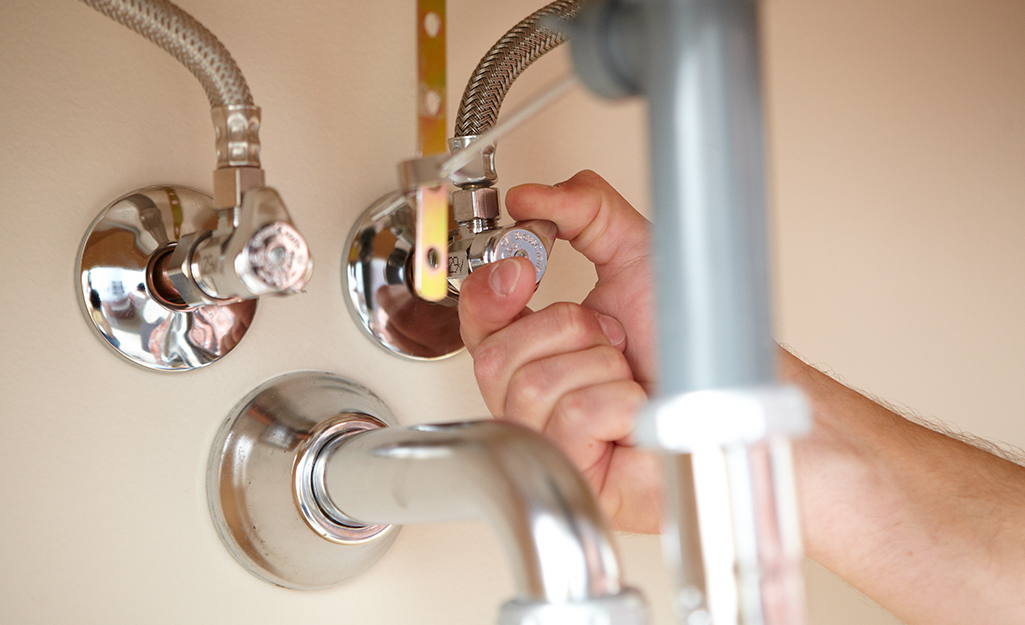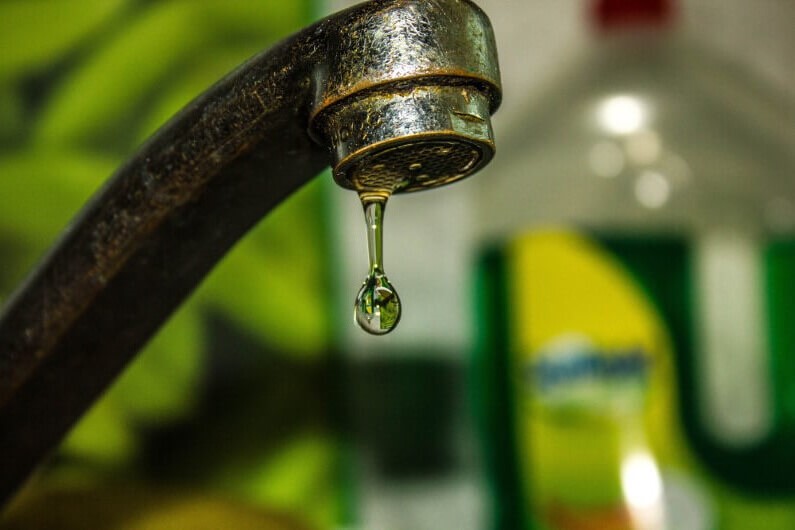What're your ideas regarding 4 Common Reasons for a Leaky Faucet?

Leaking faucets might look like a minor inconvenience, yet their influence exceeds just the inconvenience of the audio. From wasting water to incurring unneeded monetary costs and wellness dangers, ignoring a trickling faucet can bring about different consequences. In this post, we'll delve into why it's essential to resolve this common household concern quickly and properly.
Wastage of Water
Ecological Influence
Leaking taps add substantially to water wastefulness. According to the Environmental Protection Agency (EPA), a solitary tap dripping at one drip per second can lose greater than 3,000 gallons of water each year. This not just pressures water sources yet also affects communities and wildlife based on them.
Step-by-Step Guide to Fixing a Dripping Faucet
Tools Needed
Prior to attempting to deal with a dripping tap, gather the required devices, including an adjustable wrench, screwdrivers, substitute parts (such as washers or cartridges), and plumber's tape.
Common Faucet Issues and Their Solutions
Determine the sort of faucet and the particular problem creating the drip. Usual problems include worn-out washers, corroded shutoff seats, or damaged O-rings. Describe supplier directions or on the internet tutorials for detailed support on repairs.
Financial Prices
Raised Water Costs
Past the ecological effect, leaking faucets can inflate water bills considerably. The built up wastage with time equates right into higher energy expenses, which might have been avoided with prompt repairs.
Possible Residential Or Commercial Property Damage
Furthermore, long term leaking can bring about harm to fixtures and surface areas bordering the faucet. Water buildup can trigger discoloration, rust, and also structural issues if left unattended, resulting in additional fixing prices.
Health and wellness Worries
Mold and Mold Development
The constant visibility of moisture from a trickling faucet creates an ideal setting for mold and mold growth. These fungis not only endanger indoor air top quality however likewise posture health and wellness threats, especially for people with respiratory problems or allergic reactions.
Waterborne Diseases
Stagnant water in trickling taps can become a breeding place for microorganisms and other microorganisms, raising the risk of waterborne diseases. Pollutants such as Legionella germs prosper in stationary water, possibly bring about severe health problems when ingested or breathed in.
DIY vs. Professional Fixing
Benefits and drawbacks of Do It Yourself Repair Work
While some might attempt to fix a trickling faucet themselves, do it yourself repairs feature their own collection of challenges. Without appropriate expertise and tools, do it yourself attempts can worsen the issue or cause insufficient repairs, extending the trouble.
Advantages of Hiring an Expert Plumber
Working with a specialist plumber ensures that the underlying reason for the leaking tap is resolved efficiently. Plumbing technicians have the expertise and devices to diagnose and fix tap concerns effectively, saving time and reducing the threat of more damages.
Environmental Responsibility
Individual Contribution to Conservation
Taking obligation for repairing leaking taps lines up with wider initiatives toward water conservation and environmental sustainability. Every individual's actions jointly make a substantial influence on maintaining priceless resources.
Sustainable Living Practices
By focusing on timely repair services and adopting water-saving habits, people contribute to lasting living methods that benefit both existing and future generations.
Preventive Measures
Normal Maintenance Tips
To stop leaking taps, do regular maintenance such as cleansing aerators, checking for leakages, and replacing damaged components quickly. In addition, think about mounting water-saving devices or upgrading to extra efficient fixtures.
Value of Prompt Repairs
Attending to trickling taps as quickly as they're noticed avoids additional water waste and possible damages, inevitably conserving both water and cash over time.
Effect On Home Value
Perception of Well-Maintained Home
Preserving a property in good condition, consisting of resolving upkeep issues like dripping taps, boosts its regarded worth and worth among possible purchasers or renters.
Impact on Resale Value
Characteristics with properly maintained plumbing fixtures, consisting of faucets, command greater resale values in the realty market. Addressing leaking faucets can contribute to a favorable perception throughout home inspections and settlements.
Verdict
Addressing a dripping faucet goes beyond simple benefit; it's a crucial action towards saving water, decreasing monetary prices, and securing wellness and property. Whether with DIY repair services or specialist aid, taking action to deal with trickling taps is a small yet impactful method to promote liable stewardship of resources and contribute to a healthier, more sustainable future.
How to Fix a Leaky Faucet: Step-by-Step Repair Guide
A leaky faucet may seem like a simple annoyance, but if it's not fixed promptly, that leak could cost hundreds to potentially thousands. From water damage to mold, mildew, and high water bills, even a tiny leak can be catastrophic if left unattended. Damage like this can even affect the overall value of your home, so it's important to take the right approach for leaky faucet repair. You may need the help of a plumber in some cases, but we've got a few tips you can try on how to fix a leaky faucet before calling the pros.
Four Faucet Types
When you're learning how to fix a leaky faucet, the first step is knowing what kind of faucet you're working with! There are four common types.
Cartridge Faucets
Cartridge faucets come in one- or two-handled varieties. In one-handled cartridge faucets, hot and cold water combines in a single cartridge. In the two-handled versions, hot and cold water are controlled separately and mixed in the faucet.
Ball Faucets
Ball faucets have a single lever you push up and down to adjust the pressure and rotate to change the temperature. A slotted metal ball controls the amount of water allowed into the spout.
Compression Washer Faucets
They're the oldest type of faucet, but they're still used in many homes — especially older ones. Compression faucets have two separate handles that, when turned, raise or lower the washer that seals a water valve. This valve stops water from flowing through the faucet when it is turned off.
Disc Faucets
Disc faucets rarely need to be repaired due to their maintenance-free design. The water flow is controlled by two discs — the upper one raises and lowers against a fixed lower disc, creating a watertight seal. If your disc faucet starts leaking, you may need to replace the seals or clean residue buildup from the inlets.
Fixing a Leaky Faucet
Step 1: Turn Off the Water
Whether you're learning how to fix a leaky bathtub faucet or how to fix a leaky kitchen faucet, always turn off the water supply to your working area when you're fixing a leak. The last thing you want is a flood added to your list of things to fix.
Look for the shutoff valves below your sink or around the tub and turn them clockwise to stop the water flow. If your faucet doesn't have shutoff valves, you may need to turn off the water for the whole house. Check to make sure it's off by turning the faucet on. If nothing comes out, you're ready to start the repair.
Step 2: Take Apart the Faucet
How you disassemble your faucet depends on the type of fixture you have. You can use a flathead screwdriver to remove the caps on top of the handle or handles for cartridge and compression faucets. Inside, you should see handle screws. Unscrew these with a screwdriver to remove the handle.
Disc- and ball-style faucets will typically have an inlet screw near the handle, and removing that will reveal the interior of the faucet.
Detach the Valve Stem
For cartridge- and compression-style faucets, you'll see the inner valve stem or cartridge once you remove the faucet handles. If you have a compression faucet, unscrew the brass valve stem. If you have a cartridge faucet, pull out the cartridge. If your cartridge has been in place for a while, it may require some tools or extra force to remove it due to mineral deposits.
Examine and Replace Parts
Once you've removed the parts, check them out to confirm what needs to be replaced. You may see corroded rubber washers, O-rings, stems, or cartridges. On a ball-style faucet, check the seats and springs for damage.
If you need to repair a leaky disc faucet, check the inlet and seals on the lower disc.
Once you determine what parts must be replaced, visit your local hardware store. Bring the damaged parts with you to ensure you can purchase the correct components to replace them.
Clean Valves and Faucet Cavity
If you've removed a stem or cartridge, you may notice mineral buildup in the faucet's threads. Use white vinegar to clean the valve seat by soaking it for a few minutes, then scrub it away with a soft toothbrush and rinse with warm water. You can also clean the interior of the faucet in the same way.
Reassemble the Faucet
Once your faucet is cleaned and the required parts have been replaced, it's time to reassemble it. Put the pieces back together and slowly turn the water supply back on. Doing this slowly is crucial because too much initial water pressure can damage the new hardware you've just installed.
https://homewarranty.firstam.com/blog/how-to-fix-leaky-faucet

We were made aware of that editorial on Leaky Faucets: Why They Happen & What to Do About Them from a buddy on our other website. Sharing is nice. Helping people is fun. We treasure reading our article about Why Are My Faucets Dripping (And Can I Fix It Myself)?.